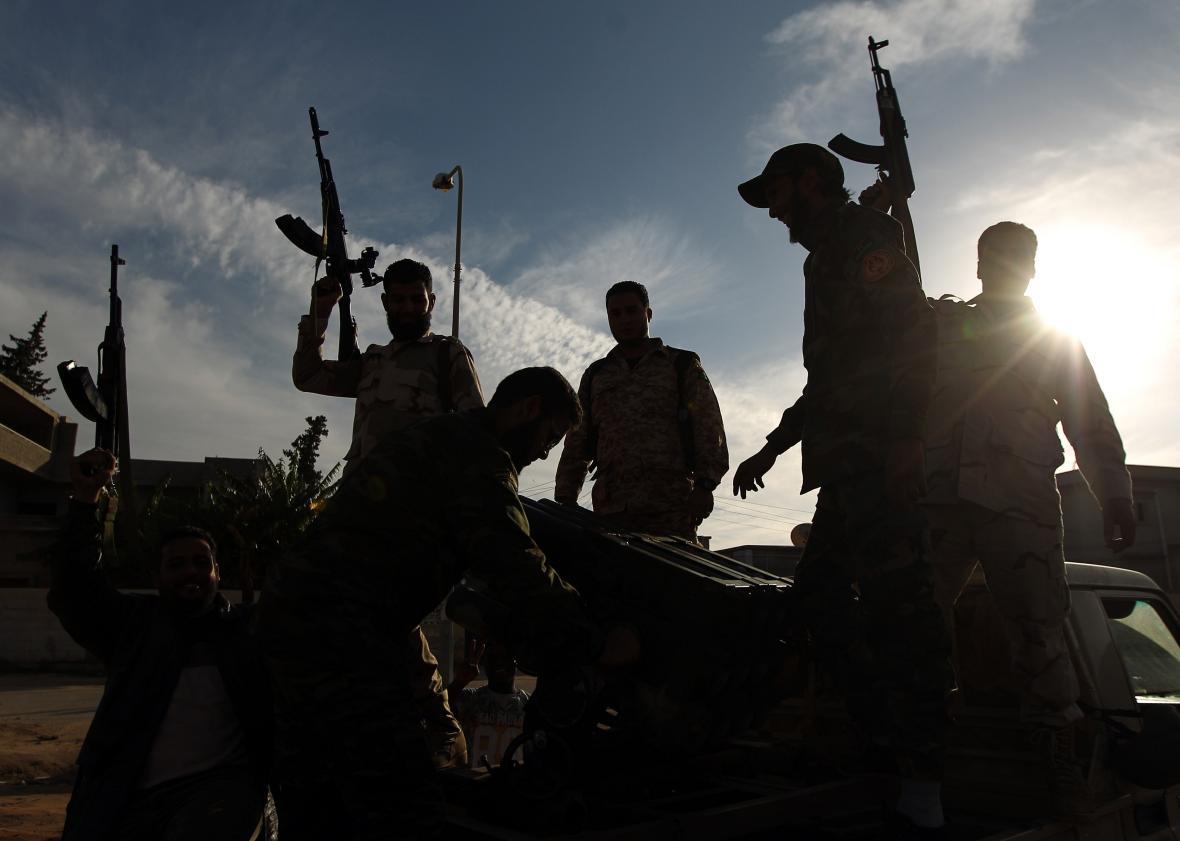U.S. officials are currently “looking at military options” to combat the spread of ISIS in Libya, according to a Pentagon spokesman. These options would most likely involve U.S. special forces coordinated with militias on the ground to fight the group, which has established a stronghold around the coastal city of Sirte, also the hometown of Muammar Qaddafi.
The challenges facing any such military intervention are similar to those in Syria—a lack of reliable partners to act as a ground force, and the fact that ISIS’s enemies are also fighting against each other. While there have been no U.S. combat operations in Libya since the fall of Qaddafi in 2011, U.S. military personnel have been paying periodic visits to the country to make contact with potential partners. One incident in December didn’t bode well for this effort. A group of commandos who were making contact with the Libyan army were asked to leave the country after the air force posted a picture of them on its Facebook page, claiming that the visit was unauthorized. The incident was likely a result of a lack of communication between Libya’s air force and army.
Libya currently has two competing governments, each with its own parliament and cabinet, a U.S.-recognized one operating in Sirte, and an Islamist one operating out of Tripoli, the capital. Each is supported by a number of semi-independent militias. The two sides signed a deal to form a unity government at U.N.-brokered talks in December, but internal divisions on both sides have slowed down efforts to actually form a new government, and the power vacuum has only benefited ISIS.
While the military intervention to topple Qaddafi was once seen as a major U.S. military success, and perhaps even a template for future operations, views on it have soured as the country has descended into chaos and violence, including the 2012 attack on a U.S. diplomatic compound in Benghazi. (Perhaps you’ve heard about it?)
A new U.S. military operation in Libya, even a limited one, could also have political implications in the United States. While differences between candidates in both parties over U.S. policy in Syria tend to focus more on tone than policy, the divisions are more stark when it comes to Libya. Hillary Clinton, as secretary of state, was a strong advocate for military action against Qaddafi—more enthusiastic than the president himself, something her rival Bernie Sanders has expressed reservations about. On the Republican side, Ted Cruz and Donald Trump have criticized the decision to remove Qaddafi, while Marco Rubio has strongly defended it.
While the U.S. intervention will likely start out small, recent events in Iraq and Syria have shown that these operations have a tendency to snowball into something much larger than what their planners originally intended. The topic of regime change already seemed likely to become the central foreign policy debate of this election, and that will certainly be the case if the U.S. military returns to Libya.
